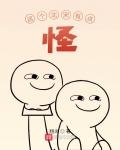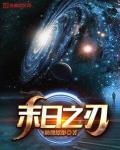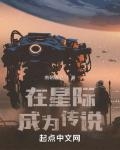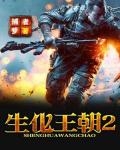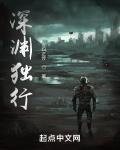Chapter 185: Qi-taking and fasting, seven waters to purify the body
Chen Jue had always wanted to try to practice the art of fasting, but the information on the Internet was incomplete, and some of the information was just fragments and the imaginations of later generations.
It has been mentioned in boxing classics that after holding the elixir and sitting on the hips, the internal and external forces will be combined, and one can achieve the power-boosting skill of "hitting an inch in the air" with dark force transformed into force.
Due to the powerful attributes of Chen Jue, he was able to achieve this step of transforming dark power into罡 as early as when he practiced the dark power in his hands. Moreover, his dark power is not just a one-inch strike in the air. As soon as he perfected the Eight Immortals Posture, he can spray three inches underwater. This is all related to his attributes that exceed the limit of human beings.
If ordinary people want to achieve the goal of “hitting an inch in the air”, they must hold the elixir, then break through the void to see the spirit, dig out the hidden dangers of the body, and then practice the skills of fasting and eating air to keep the body at its peak, so as to maintain the physical strength to “hit an inch in the air”.
In Chen Jue's opinion, the key to keeping the body "indestructible" is the combination of inner vision and fasting.
When he visited Wu Shi Dang before, Chen Jue had discussed a similar fasting technique with Taoist Master Huang Shizhen, who ran an orthopedic clinic.
There was originally a long-standing Taoist practice called "Daozang Bigu Gong", but it was completely burned out by a fire during a fight several decades ago. I think it was done by people like Lin Yuanchao.
Just like the original copy of the Xisui Jing, it was burned in a fire during a war more than a hundred years ago, and all the copies left until now are fabricated by later generations. Only the Yi Jin Jing can be passed down in an orderly manner.
Many martial arts treasures of this type have mostly disappeared in the long river of time. Unexpectedly, Chen Jue found a unique copy during his trip to the research institute.
After picking up the unique copy and flipping through it, Chen Jue discovered that this fasting technique consists of three steps: the first is to fast for a period of time to cleanse the stomach and intestines, the second is to drink water to detoxify, and the last is fasting by breathing in qi.
All three steps are continuous and take a lot of time. The more toxins accumulate in the body, the longer the fasting will take.
It’s just that the “qi” mentioned in this exercise is not the “air” or “oxygen” that ordinary people think of, but the “qi” of the innate “qi”!
This surprised Chen Jue. He couldn't help but think, "Sure enough! Our ancestors also discovered the existence of the innate Qi from meteorites. It turns out that true fasting is still inseparable from this kind of energy radiation."
Chen Jue recalled the scene when he used the meteorite to practice. When his whole body was washed by the innate Qi, his body cells entered a process of continuous strengthening and slow transformation.
Compared with the energy provided by daily meals, the innate qi emitted by meteorites is more harmless.
When Chen Jue was working in Beijing, his first boss was a person who paid great attention to healthy eating.
He won’t eat rice that isn’t pollution-free, or fruits, vegetables, meat, or eggs that aren’t provided by organic farms, and even his drinking water is a brand that’s airlifted in from abroad.
There are many such special shops at the entrance of many high-end residential areas in Beijing. They do not sell anything else but supply food and drinking water to the rich and make a lot of money.
People often say that medicine is three-part poison. In fact, there are impurities and toxins in the food we consume every day. Otherwise, why would those rich people pay attention to their daily diet intake?
After awakening his [Inner Vision], Chen Jue often observed the scenes after food was digested in the body. He indeed saw the so-called impurities and toxins in the digestion process, which coincided with some of the contents in the "Auto-intoxication Theory" he had read before.
"To purify the toxins in the body, this Taoist Qigong is worth practicing."
"But this base is not suitable. There are too many people and the acquired filth is mixed together..." Chen Jue thought so, and read the entire book at a glance and memorized it all. He planned to find a suitable place to practice the fasting skill and let his body truly enter the "indestructible" state.
…
Chen Jue stayed in the base for a full seven days and also studied for seven days. A considerable amount of knowledge related to the human body was stored in his mind, and he needed some time to slowly sort it out and digest it.
However, when he picked up his bag and prepared to leave the base, Deputy Director Liu Chengdong asked sincerely: "Comrade Chen Jue, are you really not planning to stay for a while? That plan..."
"I have disturbed you for so long, it is time to go back."
"As for the plan, I haven't thought about it yet. I'll contact you when I figure it out!" Chen Jue said tactfully, and then he got into the vehicle arranged by the institute and drove away from the base.
"Oh! What a pity for this special candidate... If he could agree earlier, we could start the follow-up plan earlier. Now we can only pick the tallest one from the short ones among the first-level candidates." Liu Chengdong sighed helplessly and went back to report the situation to Zhong Deyuan.
…
The car drove out of the base and originally planned to take Chen Jue to the nearest airport, because the institute reimbursed Chen Jue's return air ticket and travel expenses.
However, after Chen Jue left the base, he found that the location of his cell phone showed that he was near Wu City in Long Province. So he did not ask the driver to take him to the airport, but asked him to take him to the nearest town where he could get a ride.
The driver of the institute was also quite kind-hearted. Seeing Chen Jue made this request, he changed route and took him to the nearest station.
Chen Jue went into the station, bought a ticket, and took a bus for more than two hours to reach Tianzhu County, where he had been twice before. This was the hometown of his roommate Jiang Fan, who was also the hometown of the second roommate in the dormitory who was of Tibetan-Han descent and had settled in Hangzhou.
I had come here just after I quit my job in Beidu and was warmly received by Jiang Fan's family.
Later, when Jiang Fan got married, he chartered a plane back to his hometown with a group of roommates to hold the wedding. Chen Jue came again for the second time.
Both trips to Tianzhu left Chen Jue with a very deep impression of the city and its scenery. He happened to be nearby so he thought of revisiting the place and visiting Jiang Fan's parents.
After getting off the bus, looking at the familiar small county town with only two bus routes in front of him, Chen Jue followed his memory and found the restaurant opened by Jiang Fan's parents downstairs.
Seeing the old couple, one busy cooking in the kitchen and the other sitting behind the cashier watching the diners in the store, Chen Jue stepped forward and greeted them: "Auntie, do you remember me? I am Jiang Fan's classmate. "
"Xiao Fan's classmate? I remember! You are the old cat who came twice!" Jiang Fan's mother had a chubby figure and a plump face, but when she saw Chen Jue appear, she shouted in surprise.
"Haha! Auntie, you just remembered my nickname. I just happened to pass by here, so I came to see you two." Chen Jue said as he took out his phone and played a video to Jiang Fan who was far away in Hangzhou. Jiang Fan, who was busy working on the other end of the video, couldn't help but burst out when he saw the familiar restaurant scene and his mother in the camera: "Oh my god! Old cat, why did you go to my hometown?"
"I happened to pass by, so I came to see aunt and uncle." Chen Jue said as he handed the phone to Jiang Fan's mother.
The mother and son probably had many video calls in their free time, but because they were separated by distance, they missed each other very much and still had endless things to say. They talked on the phone for a long time before Jiang Fan's mother handed the phone back with red eyes.
Chen Jue chatted with Jiang Fan for a few minutes. The other party asked Chen Jue to stay at his house for two days and spend more time with his parents. Chen Jue did not refuse and found an empty seat in the restaurant and sat down.
Probably because she loved her son so much, and because her only son lived far away in Hangzhou, more than 2,000 kilometers away, making it difficult to see him, Jiang Fan's mother felt very close to Chen Jue, her son's roommate. She talked to Chen Jue about family matters in a subtle and warm manner, and asked Jiang Fan's father to cook a few delicious dishes for him.
The food is the specialty of Tianzhu. The main dish is braised lamb ribs, which are soft and glutinous, fat but not greasy. You can tear the meat and skin off the ribs with one suck. It tastes salty and fresh with the unique slightly spicy flavor of northwestern lamb.
The sheep in Tianzhu are all raised on grass and herbs, unlike the sheep in Wen City, which are naturally smelt of mutton which is difficult to get rid of.
The staple food was a bowl of ramen filled with beef. Chen Jue didn't hesitate to eat a whole table of food as he was hungry. Finally, at the warm invitation of Jiang Fan's parents, he carried his bag and went upstairs and moved into Jiang Fan's bedroom.
The bedroom is filled with photos of Jiang Fan when he was a child, as well as his wedding photos and photos of his children.
Although the house had not been occupied for a long time, Jiang Fan's mother still kept it clean, with new sheets and quilts. These subtle daily actions showed that she was looking forward to her son's return from Hangzhou every day.
"You kids! You've grown up, your wings are strong, and you want to fly everywhere like eagles."
"I'm used to living in a big city and can't stay in this small county town." Jiang Fan's mother straightened the bed sheets and started chatting with Chen Jue.
During the conversation, Chen Jue learned a lot about Jiang Fan's past, from going to Wenzhou to attend university, returning to Tianzhu County for half a year, and then going to Hangzhou to work hard and become a migrant worker.
It was not easy to survive in the big city at the beginning. My salary was not enough to spend, and I often asked my parents for support.
Later, he met a girl from Hangzhou. In order to buy a house and get married, he even sold the wedding house in his hometown that his parents had prepared for him, just to make up the unaffordable down payment in Hangzhou.
Fortunately, Jiang Fan worked hard enough and has now risen to the middle level of the company, and his life is okay.
Just settling down in a big city two thousand kilometers away is like abandoning everything in my hometown and taking root again in a strange big city. Parents, relatives, and the environment in which I grew up as a child are gradually fading away, and I can only go back to my hometown a few times a year.
This life trajectory is somewhat similar to Chen Jue's previous wanderings.
However, seeing Jiang Fan's mother exuding longing for her son and that motherly love, Chen Jue couldn't help but sigh: "Parents are not far away, but my parents are no longer in this world..."
…
After staying at Jiang Fan's house for one night, Chen Jue originally planned to leave the next day, but he could not resist the enthusiasm of his uncle and aunt.
The old couple probably missed their son, and because they loved Chen Jue so much, they treated him like their own son, entertaining him with delicious food and drinks. On the night when the restaurant closed, they even took Chen Jue to the night market in the county town to eat barbecue and kept him there for two nights.
On the third day, Chen Jue did not stay any longer, but said goodbye to his parents. He did not take the bus from the county to Lancheng, but instead put on his backpack and walked to the suburbs of Tianzhu County.
Chen Jue had been here twice before and was deeply impressed by the Qilian Snow Mountain in the suburbs, so he wanted to go and see it again.
It is December now, the weather is cold and the Qilian Snow Mountains are covered with ice and snow. The originally lush green grassland has become dry and brown, and most of it is covered by snow and frost in the early morning. A winding glacier runs through the entire grassland.
Tents, hanging prayer flags and Hadas can be seen everywhere. The local herdsmen with dark complexions are driving yaks and sheep. On the gravel roads in the suburbs, one can often see steam coming out of the feces left by cattle and sheep. Chen Jue walked while looking at the vast snow-capped mountains around him. His mind was peaceful, but he would think of the home plan from time to time.
As we walked, we came to a temple at the foot of the mountain, close to the herdsmen's grassland. The temple here is very different from traditional temples.
Because they believe in Tibetan Buddhism, the monks in the temple are different from those in Shaolin Temple. They are all lamas wearing dark red and dark yellow clothes. They either turn prayer wheels in their hands or hold Buddhist beads and recite scriptures.
The Tantric Mahamudra that Chen Jue practiced came from Tibetan Buddhism, so he became interested in the unique pronunciations of these lamas. He went into the temple, worshipped the gods and Buddhas, turned the large prayer wheels, and looked at the seven gold and silver inlaid offering bowls placed in order on the altar in front of the Buddha. The bowls were filled with clear water. Chen Jue recognized that these were the extremely rare "Seven Offerings" in Buddhism, and also the "Seven Pure Waters" dedicated to the Buddha.
These seven bowls of water represent: "water, fire, lamp, incense, flower, tea, and rice" respectively.
They symbolize the seven kinds of offerings that believers presented to the Buddha when he was begging for alms before he became a Buddha.
Because in Buddhist thought, "water" represents the nature of "emptiness", which can be transformed into the holy fruit of Prajna. In the upper part, it can be the Bodhi dew to lead people into dreams. In the middle, it can be thousands of flowing waters for people to wash their mortal bodies. In the lower part, it can be a drop of the Yellow Spring to make people forget their worries.
In Taoism, water is "nature". Water has no constant state and is free and unrestrained. Taoism emphasizes judging its nature by its form. What Lao Tzu said, "The highest good is like water", is what he realized by observing the state of water.
However, when Chen Jue saw these seven bowls of water, they coincided with the concept of drinking water for seven days to detoxify that he had learned in the Bigu Qigong.
It is believed that when Sakyamuni attained enlightenment through begging for alms, he had already entered the state of indestructibility, and also understood the fasting method of purifying the body with water.
Staring at the seven bowls of water, Chen Jue was inspired by the Lama chanting scriptures. He found a cushion to sit on, put down his backpack, and sat cross-legged on the cushion. He placed his hands in front of his chest and made a series of changes. He uttered a Sanskrit sound like thunder: "Om Ah Moo!"
This is the fundamental sound of the Purification Mantra, and it is also the three musical scales representing heaven, earth, and man in Buddhism.
In the understanding of Buddhist believers, these three scales have the effect of curing diseases, prolonging life, increasing intelligence and opening wisdom. However, in Chen Jue's [inner vision] perception, he can see that the cells in his body begin to become peaceful and restrained under the sound wave vibrations of the body purification mantra, and even in conjunction with the practice of fasting, they are constantly excreting impurities and toxins produced by cell metabolism.
As Chen Jue's chanting became louder and louder, it gradually drowned out the sound of the lamas chanting in the temple. Many lamas who were doing their homework began to come towards the sound, looking at Chen Jue with curiosity.
One of the old lamas, whose hair and beard were all white, exclaimed in disbelief after seeing Chen Jue: "Zhu Gu!"
"This donor is already a reincarnated sage!"

